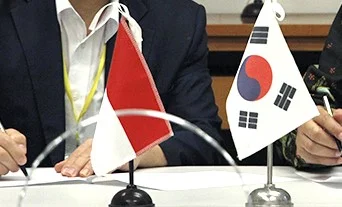Fair or foul play? Investor State Dispute Settlement in the COVID era
/If there is one assertion that very few people will disagree on, it’s that governments, citizens and businesses alike have all had a tough year to date. For some, 2020 has been nothing short of a disaster or tragedy; for others, a year of challenges, change and disruption.
Amidst the chaos wreaked by COVID-19, habits, customs, careers, business practices and socio-economic policies are all being radically reshaped: from pilots retraining to become plumbers; from ‘please move down inside the carriage’ to ‘please go on mute’; from manufacturing travel bags to face masks; from laissez-faire governance to state-sponsored job retention and dining discount schemes. And amidst all of these changes, a complex potion of bewilderment, anxiety, frustration and even anger has been brewing.
Some members of one disenchanted group – the foreign multinational – are now mulling options to seek recompense for their losses through the long-established yet often controversial system of Investor State Dispute Settlement (ISDS).
For those unfamiliar with the term, ISDS is a mechanism whereby a company with an entity in another country (i.e. a ‘foreign investor’) can seek compensation from its host government by taking a case to international arbitration – a claim that would be all but impossible to pursue through the host country’s own court system.
Since the onset of COVID-19, governments around the world have taken rapid and often drastic actions to try and mitigate the impact of the pandemic on communities, citizens and also businesses. As is often the case with drastic measures, there are winners and losers, and there is growing anticipation by law firms and other legal experts that a significant number of ISDS proceedings will be initiated by foreign investors aggrieved by a wide range of issues – from postponed or cancelled government procurement to export restrictions and bans.
ISDS, which features in many of the world’s Bilateral Investment Treaties (BITs), has long had its critics, described by some campaigners as ‘a parallel justice system for the rich’[1], while the Trade Justice Movement has called ISDS out for hindering the ability of host governments to decide policy in areas such as energy, water and climate change.
The chaos brought about by COVID-19 adds another unsavoury dimension to ISDS: the image of wealthy multinationals seeking to ‘cash in’ on the misfortunes and misery of a pandemic. Granted, some foreign multinationals have endured losses, but so too have micro, small and medium enterprises, so too have workers who have lost their jobs, and the losses felt by those without deep pockets and extensive resources inevitably tend to be far greater. The latter domestic groups may well have grievances against their governments too – and yet in most cases, justice or redress will be sought either at the ballot box, through an enquiry, or by advocating remedial programmes and other measures. The notion that often well-resourced multinationals will seek financial compensation by suing already struggling and even cash-strapped governments will strike many in civil society as inappropriate, offensive and an example of corporate greed.
Such actions also risk of fanning the flames of protectionism in many countries: that a major domestic firm would seek to sue its host government in such difficult circumstances might already be met with hostility. The fact that a foreign company would pursue such an action would be taken by many as an assault not just on the government, but the country itself, and seen as ‘yet another example of foreigners coming and taking whatever they can get.’
Multinationals may well have fair and legitimate grievances against their host countries, and these countries have their business and investment climate reputations at stake when investor grievances reach the dispute stage. Yet in deciding to instigate ISDS proceedings, companies would be well-advised to consider the impact on their own corporate reputation in that market – and by extension the possible impact on their customer and client base in that market – particularly where consumer brands are involved.
The issue is exacerbated by the fact that all over the world, governments – principally through their Investment Promotion Agencies (IPAs) – have undertaken significant measures to advise and support businesses – including foreign investors – in a wide range of areas, from streamlining and simplifying permitting and licensing requirements, through to accessing fiscal incentives. With a major slump in FDI anticipated in 2020 and 2021, governments are acutely aware of the need to support their existing investor base by helping to avoid downsizing, closures and relocations, while charting a path towards anticipated expansions in the medium- to longer-term. For such efforts to be met with some corporations suing their host governments for shortcomings as a result of COVID-related measures and policies designed to serve the national interest would be a step too far and considered ‘foul play’ rather than ‘fair play’ for many.
Multinationals considering launching ISDS proceedings in the midst or aftermath of the pandemic may need to carefully consider the impact on their corporate reputation (and by extension their sales) among consumers and other stakeholders in the host country.
[1] As described by Corporateurope.org, referencing the “Stop ISDS” Alliance, which brings together over 200 European organisations, trade unions and social movements.









